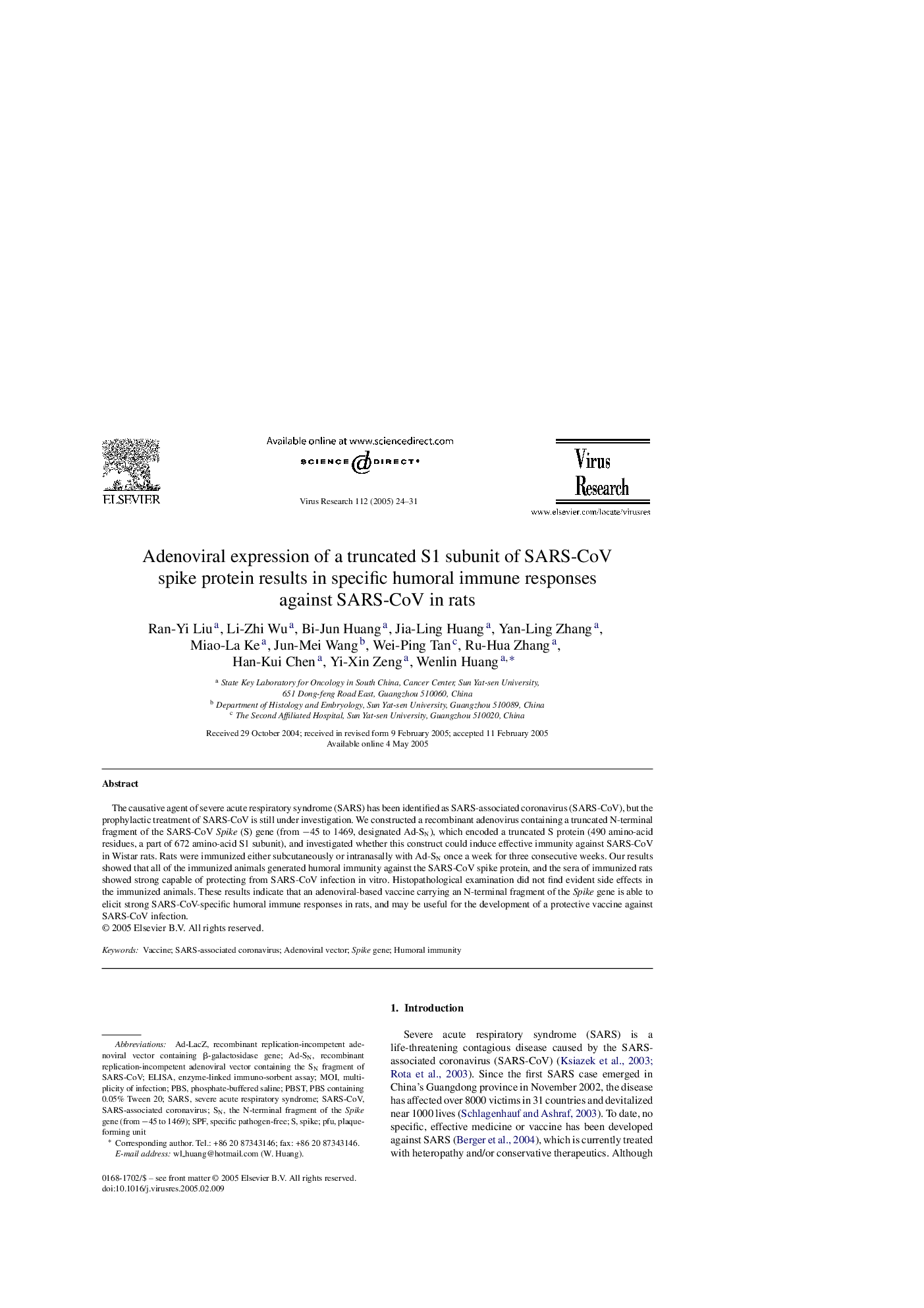| Article ID | Journal | Published Year | Pages | File Type |
|---|---|---|---|---|
| 9289334 | Virus Research | 2005 | 8 Pages |
Abstract
The causative agent of severe acute respiratory syndrome (SARS) has been identified as SARS-associated coronavirus (SARS-CoV), but the prophylactic treatment of SARS-CoV is still under investigation. We constructed a recombinant adenovirus containing a truncated N-terminal fragment of the SARS-CoV Spike (S) gene (from â45 to 1469, designated Ad-SN), which encoded a truncated S protein (490 amino-acid residues, a part of 672 amino-acid S1 subunit), and investigated whether this construct could induce effective immunity against SARS-CoV in Wistar rats. Rats were immunized either subcutaneously or intranasally with Ad-SN once a week for three consecutive weeks. Our results showed that all of the immunized animals generated humoral immunity against the SARS-CoV spike protein, and the sera of immunized rats showed strong capable of protecting from SARS-CoV infection in vitro. Histopathological examination did not find evident side effects in the immunized animals. These results indicate that an adenoviral-based vaccine carrying an N-terminal fragment of the Spike gene is able to elicit strong SARS-CoV-specific humoral immune responses in rats, and may be useful for the development of a protective vaccine against SARS-CoV infection.
Keywords
SARS-associated coronavirusPBSSPFAd-LacZPBSTSARS-CoVMOIPBS containing 0.05% Tween 20Enzyme-Linked Immuno-Sorbent AssaySpikeHumoral immunityAdenoviral vectorELISAspecific pathogen-freeSARSsevere acute respiratory syndromePhosphate-buffered salineplaque-forming unitVaccinepfumultiplicity of infectionSpike gene
Related Topics
Life Sciences
Immunology and Microbiology
Virology
Authors
Ran-Yi Liu, Li-Zhi Wu, Bi-Jun Huang, Jia-Ling Huang, Yan-Ling Zhang, Miao-La Ke, Jun-Mei Wang, Wei-Ping Tan, Ru-Hua Zhang, Han-Kui Chen, Yi-Xin Zeng, Wenlin Huang,
